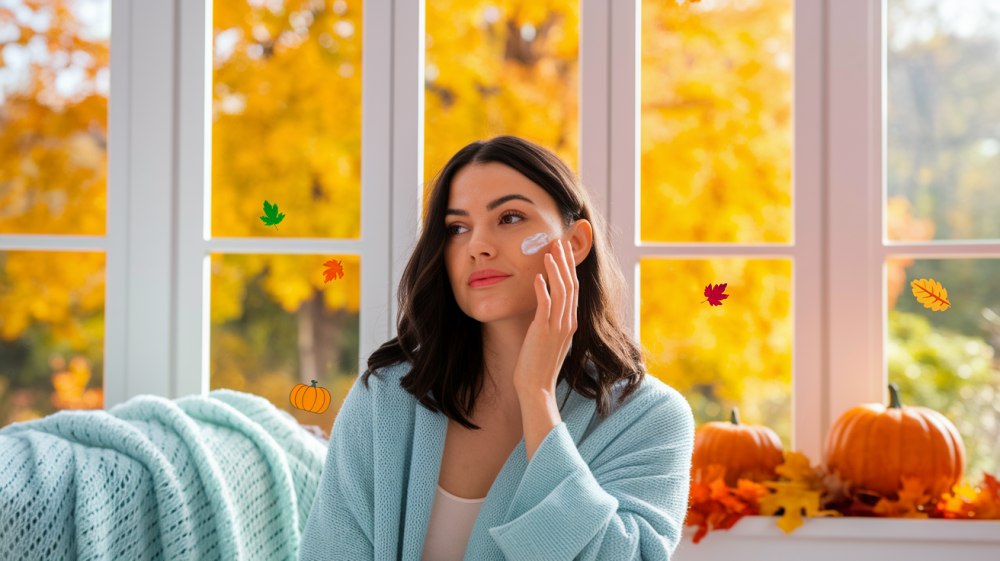
Is Blue Light Damaging Your Skin? What You Need to Know

You already know blue light can disrupt your sleep, but your skin? That’s a plot twist no one saw coming. Between your phone, laptop, and LED lights, you’re bathing in blue light for hours—and your skin is taking the hit.
From dullness to premature aging, the effects are real. Let’s break down how blue light affects your skin and what you can actually do to protect it.
TLDR – Quick Guide
- Blue light (HEV light) comes from screens and sunlight and can penetrate deeper into the skin than UVB.
- It contributes to oxidative stress, inflammation, and hyperpigmentation—especially in deeper skin tones.
- Common results: premature aging, dullness, and uneven tone.
- Antioxidant-rich skincare and physical sunscreen are your best defense.
- Limit exposure with screen filters, nighttime modes, and skincare routines that target blue light damage.
Detailed Breakdown
What Is Blue Light?
Blue light—also known as high-energy visible (HEV) light—is part of the visible light spectrum and is emitted by the sun, as well as your phone, computer, TV, and LED lighting. While it helps regulate your circadian rhythm, chronic overexposure, especially from devices, raises serious concerns for your skin’s long-term health.
The Main Skin Issues Caused by Blue Light
Premature Aging
Research suggests blue light generates free radicals that break down collagen and elastin—accelerating wrinkles and sagging, even faster than some UV rays.
Hyperpigmentation
Blue light stimulates melanocytes (pigment-producing cells), leading to dark spots and uneven tone, especially in medium to deep skin tones.
Inflammation & Redness
HEV light exposure can trigger inflammatory pathways, worsening skin conditions like melasma, rosacea, and post-acne marks.
Dullness and Fatigue
Constant screen time zaps skin vibrancy, leading to a tired, lackluster look—especially around the eyes and cheeks.
What You Can Do About It
1. Strengthen Your Skincare Shield
- Use antioxidant serums: Vitamin C, niacinamide, and ferulic acid neutralize free radicals caused by blue light.
- Layer on barrier-supporting moisturizers with ceramides and peptides.
- Apply mineral sunscreen with iron oxide—specifically proven to block visible light, unlike chemical sunscreens.
2. Minimize Exposure Without Ditching Devices
- Enable “Night Shift” or blue light filters on all your devices.
- Use screen protectors designed to reduce HEV light emission.
- Take screen breaks every 20 minutes to reduce intensity and give your skin a breather.
3. Prioritize Evening Skin Recovery
- Cleanse thoroughly to remove pollution and blue-light-induced free radicals.
- Use retinol or bakuchiol at night to support skin regeneration and collagen production.
- Try calming ingredients like green tea or chamomile to counteract inflammation.
4. Go Pro When You Need a Reset
- In-office treatments like LED red light therapy, microneedling, and hydrafacials can restore radiance and strengthen the skin barrier.
- Schedule regular facials focused on detoxifying and revitalizing tired, tech-stressed skin.
5. Lifestyle Tweaks That Help
- A diet rich in antioxidants (think berries, leafy greens, green tea) helps fight internal oxidative stress.
- Stay hydrated—water keeps your skin more resilient to environmental stressors.
- Get consistent sleep to repair blue light damage at the cellular level.
Key Takeaways
- Blue light skin damage is real and increasingly relevant in our device-heavy lives.
- It accelerates aging, worsens pigmentation, and causes inflammation.
- Topical antioxidants + physical sunscreens = smart defense.
- Limit exposure, especially at night, and consider screen protectors and filters.
- Professional treatments can help reverse damage and strengthen your skin barrier.
FAQs
- What is blue light, and where does it come from?
Blue light (HEV) is part of the visible light spectrum. It’s emitted by the sun and artificial sources like phones, computers, tablets, and LED lights. - Can blue light really age your skin?
Yes. It can penetrate deeper than UVB and causes oxidative stress, which breaks down collagen and speeds up aging. - How do I know if blue light is affecting my skin?
Look for signs like dullness, hyperpigmentation (especially on the cheeks or around the eyes), and an increase in fine lines or inflammation. - What skincare ingredients help protect against blue light?
Antioxidants like Vitamin C, niacinamide, and ferulic acid are key. Physical sunscreens with iron oxide also help block HEV light. - Is sunscreen enough to protect against blue light?
Not all sunscreens protect against blue light. Look for physical sunscreens with iron oxides and layer them with antioxidant serums for best results.
You Might Also Enjoy...


What Is 'Brotox' and Why Are More Men Choosing It?

The Rise of Male Jawline Enhancement: Non-Surgical Options That Work

Why Winter Is the Best Time for Laser Treatments

Top Fall Skincare Tips to Transition from Summer to Cooler Weather


